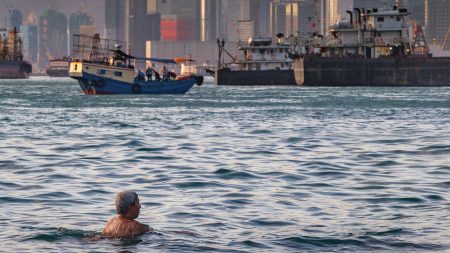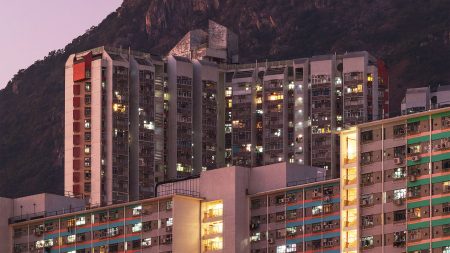Hong Kong’s new taxation regime for foreign-sourced income (Part 5)
This article dives into a comparison of the foreign-sourced income exemption (FSIE) regimes in Hong Kong and Singapore. It is a follow-up to Part 4 in the series of articles on Hong Kong’s new rules on the taxation of passive income.
This is a new area of law with no precedents yet and a complex subject matter. This article does not, and is not intended to, constitute legal advice, and should not be relied upon as such.
“It is evident that the proposed FSIE regime to be implemented in Hong Kong is more competitive compared with the one in Singapore[1].”
This was the conclusion drawn by the Bills Committee in their study of the impact of the new FSIE regime on Hong Kong’s tax competitiveness and comparison with other jurisdictions, particularly Singapore.
Hong Kong’s new FSIE regime[2] was implemented on 1 January 2023 after the European Union (EU) added Hong Kong to its watchlist of non-cooperative jurisdictions for tax purposes, following its review of FSIE regimes in 2021.
Hong Kong has historically adopted a territorial basis of taxation, where offshore profits were generally not subject to tax. Singapore, on the other hand, has for many years imposed income tax on all foreign-sourced income received in Singapore, unless specifically exempted.
Hong Kong and Singapore are two very attractive business locations for investors. Although their tax regimes are converging with the introduction of Hong Kong’s new FSIE, there are still fundamental differences.
1. Comparison of current fsie regimes in Hong Kong and Singapore
| Jurisdiction | Hong Kong | Singapore[3] |
| Legislation | Division 3A of the Inland Revenue Ordinance, sections 15H to 15S [section 1(2) of Schedule 17FC] | Sections 13 (7A) to 13 (11) of the Income Tax Act of Singapore |
| Date of effect | 1 January 2023 | 1 June 2003 |
| Scope | Only MNEs[4]
Ø Standalone local companies or purely local groups fall outside the scope of the new FSIE regime |
Any foreign-sourced income received in Singapore (active, such as foreign-sourced income, or passive) |
| Only four types of passive foreign-sourced income:
(i) Interest (ii) Intellectual property (IP) income (iii) Dividends (iv) Disposal gains |
||
| Exemptions | Ø Specified foreign-sourced income received in Hong Kong will not be taxed if the MNE meets any one of the exception requirements for the respective income category:
|
Ø Exemptions are only available to dividends, branch profits and service income
Ø Exemptions are only available to Singapore resident companies[5] Ø Foreign-sourced dividends must have been taxed at a rate not less than 15% outside Singapore Ø The “subject to tax” condition is deemed to be met where no tax has actually been paid due to tax incentives granted for substantive business activities Ø Equity disposal gains are not subject to tax if they meet certain safe harbour conditions or are substantiated to be capital in nature |
| Concept of “received” income | Passive foreign-sourced income is considered “received in Hong Kong” when it is: | Foreign-sourced income is considered “received in Singapore”[8] when it is:
|
| Double taxation relief | Ø Hong Kong resident persons who fail to meet the exemption conditions but have paid taxes on the specified foreign-sourced income in a foreign jurisdiction may obtain double taxation relief through a tax credit mechanism. The tax credit amount is capped at the lower of the foreign tax paid and the profits tax that would have been payable on the same income in Hong Kong.
Ø Look-through approach: For foreign-sourced dividends, tax credits may be allowed for not only the foreign tax paid on the dividend, but also the foreign tax paid on the investee entity’s underlying profits out of which the dividend was paid, provided the MNE held at least 10% equity interests in the investee entity when the dividend was distributed. |
Ø Taxpayers in Singapore who are taxed on the same foreign-sourced income in foreign jurisdictions can claim tax credits locally in lieu of Singapore’s FSIE regime for relief from double taxation.
|
2. Upcoming developments
Hong Kong and Singapore differ in their approach to FSIE:
- In Hong Kong: specified foreign-sourced passive income received in Hong Kong by any company is deemed to be derived from Hong Kong and therefore taxable, unless the company is an MNE that meets the exception requirements.
- In Singapore: foreign-sourced income received in Singapore is taxable, but Singapore tax resident companies are exempted, provided relevant conditions are met.
In 2022, the EU’s Code of Conduct Group issued updated guidance on FSIE, requiring all types of passive income (including capital gains) to be subject to the economic substance requirement as a prerequisite for non-taxation.
Since this requirement was not included in the Inland Revenue (Amendment) (Taxation on Specified Foreign-sourced Income) Ordinance 2022, Hong Kong remains on the EU’s watchlist of non-cooperative jurisdictions for tax purposes, despite its recent efforts. Further legislative amendments are expected regarding Hong Kong’s current profits tax treatment of foreign-sourced capital gains, taking effect on 1 January 2024.
The Hong Kong government has already announced its intention to take measures to comply with the latest EU guidance. Earlier this year, the Financial Services and the Treasury Bureau launched two consultation exercises on legislative proposals to (i) refine the FSIE regime for foreign-sourced disposal gains; and (ii) introduce a tax certainty enhancement scheme for onshore equity disposal gains.
In late July, the Inland Revenue Department organised engagement sessions with stakeholders, providing updates on the changes to these legislative proposals in response to comments received during the consultation exercises.
Similarly, Singapore’s FSIE regime needs to be amended to comply with the EU guidance. The Singapore Ministry of Finance has proposed a new section 10L into the Income Tax Act 1947[9]. If passed, the revised regime would come into force on or after 1 January 2024.
In brief, the draft bill provides that any gains received in Singapore by a relevant entity from the sale of movable or immovable property situated outside Singapore (referred to in the section as “foreign assets”) is income chargeable to tax in Singapore. A “relevant entity” is defined as a member of a group of entities, at least one member of which has a place of business outside Singapore. The proposed section 10L does not apply to: (i) financial institutions; (ii) entities with certain tax incentive schemes; and (iii) entities that meet the economic substance requirements.
Legislation relating to the FSIE regime is therefore in motion in both Hong Kong and Singapore, and further developments are to be expected.
Takeaways
- Despite the convergence of the FSIE regimes in Hong Kong and Singapore, major differences remain, particularly in:
- the approach: principle of exemption in Singapore vs principle of taxation of foreign-sourced income in Hong Kong;
- the income covered: any foreign-sourced income in Singapore vs four specified passive foreign-sourced income categories in Hong Kong; and
- different conditions for the application of exemptions[10].
- Following the latest EU guidance, further amendments to the FSIE regimes, particularly to expand the scope of taxation on disposal gains, are expected in both Hong Kong and Singapore.
This article is the last in our five-part series on Hong Kong’s new FSIE regime, entitled “An overview of Hong Kong’s new taxation regime for foreign-sourced income“. For further details on the FSIE regime, take a look at the other articles:
- Part 1 – MNEs: have economic substance or pay tax?
- Part 2 – The impact of the “economic substance” requirement on Hong Kong tax system
- Part 3 – Understanding the nexus requirement: Impact of the new tax regime on IP income
- Part 4 – Exploring the participation requirement: implications for companies in Hong Kong
[1] §44 Legislative Council Paper no. CB (1)899/2022: Report of the Bills Committee on Inland Revenue (Amendment) (Taxation on Specified Foreign-sourced Income) Bill 2022.
[2] Inland Revenue (Amendment) (Taxation on Specified Foreign-sourced Income) Ordinance 2022.
[3] Sources:
- Income Tax Act 1947 – Singapore Statutes Online (agc.gov.sg)
- 43 and §44 Legislative Council Paper no. CB (1)899/2022: Report of the Bills Committee on Inland Revenue (Amendment) (Taxation on Specified Foreign-sourced Income) Bill 2022.
[4] Simply put, an MNE in Hong Kong is a holding company with at least one permanent establishment or subsidiary overseas. The holding company is also required to prepare consolidated financial statements according to the provisions of Hong Kong law (read our Part 1 article for a more detailed definition).
[5] Singapore resident companies: businesses managed and controlled in Singapore. Note that this concept is also used to define a Hong Kong tax resident.
[6] For details: FAQ on New FSIE Regime – Frequently Asked Questions (ird.gov.hk).
[7] The expression “trade, profession or business carried on in Hong Kong” is also used to define a person subject to profit tax (Section 14 of the Inland Revenue Ordinance (Cap. 112): Charge of profits tax).
[8] The Inland Revenue Authority of Singapore has provided additional administrative guidance on a number of scenarios in which the foreign-sourced income may be considered as received or not received in Singapore, including where the income is kept in a mixed pool of funds.
[9] On 6 June 2023, the Ministry of Finance issued the draft Income Tax (Amendment) Bill 2023 for public consultation.
[10] Note that there are similarities between the Singapore tax residency definition and Hong Kong’s substance requirement (read our Part 2 article for details).



